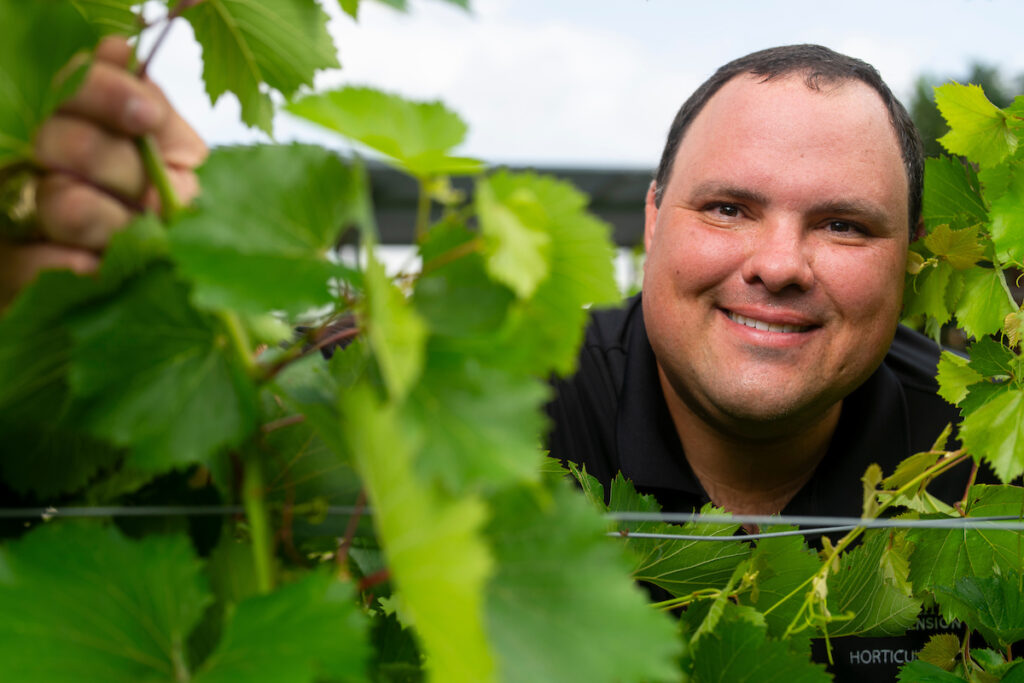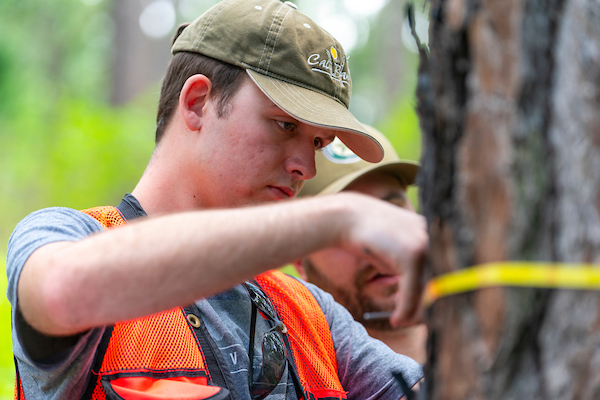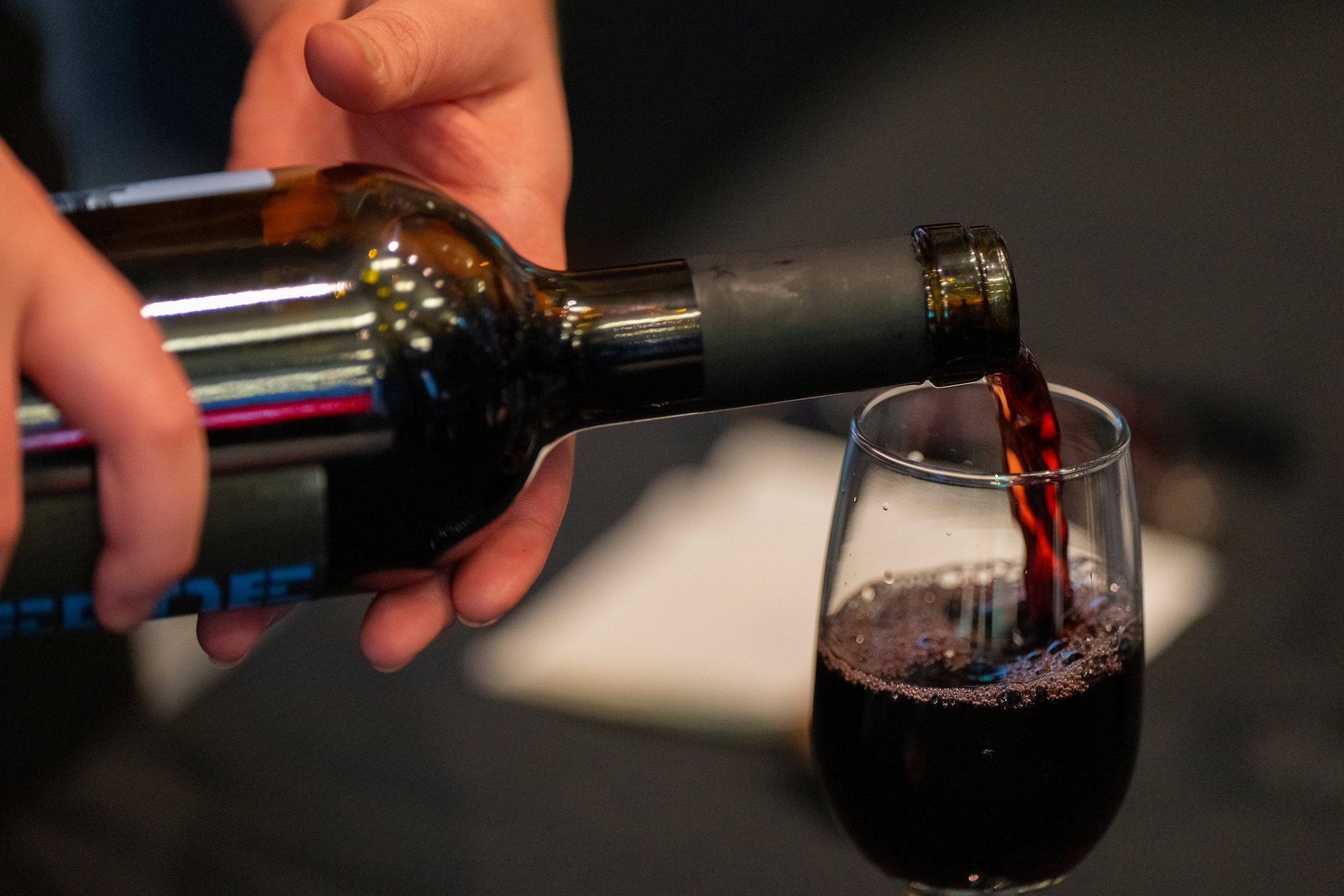Michael Cook, Texas A&M AgriLife Extension Service viticulture program specialist, Denton, and a Ph.D. student in the Texas A&M Department of Horticultural Sciences, was recently awarded a prestigious national award and scholarship for his work in viticulture.
Cook was awarded the highest honor given to a viticulture student in the nation, the Presidents’ Award for Scholarship in Viticulture from the American Society for Enology and Viticulture, ASEV. The $12,500 scholarship goes to one student per year who exceeds the expectations of the organization’s traditional scholarship program.

He thanked ASEV members for advancing the science behind wine and supporting and mentoring the next generation of wine industry professionals, including viticulture and enology scientists.
“This award and scholarship is an incredible honor,” Cook said. “No one is born an expert. It takes positive learning experiences and a strong support network to take students like me and mold them into meaningful contributors to our American wine industry. I want to thank the society for supporting my continued education in broadening the tools in my toolbox to be a more effective leader, researcher and extension educator.”
Continuing to learn
Cook will continue toward his doctorate in viticulture at Texas A&M University under co-chairs Justin Scheiner, Ph.D., associate professor and AgriLife Extension statewide viticulture specialist, and Amit Dhingra, Ph.D., professor and head of the Department of Horticultural Sciences.
He earned his bachelor’s degree in horticulture from Texas A&M and a master’s in viticulture and enology from Fresno State University in California. Cook’s master’s study was on the effects of fruit zone light management and applied water on grapevine productivity and phenolic composition.
“Pursuing my doctorate while a full-time AgriLife Extension specialist is challenging at times, but AgriLife Extension has been so supportive of my continuing education,” he said. “I think they see the value in me broadening my skill set and knowledge to better serve Texas vineyards.”
Full-time AgriLife Extension specialist, graduate student
Cook joined AgriLife Extension in 2016. Since then, he has conducted hundreds of introductory and advanced courses for prospective and established wine grape growers in his 55-county region of North and Northeast Texas, and beyond. He has also produced dozens of publications for wine industry stakeholders, including fact sheets and vineyard management best practices.
He is involved in 15 ongoing applied research projects across the state focused on a range of applied science related to vineyard production. His projects include continued wine grape variety trials, as well as research trials dedicated to identifying cider apple varieties for Texas producers.
Cook’s doctorate research focuses on the study of irrigation and cover cropping strategies to improve water use efficiency as well as their influence on wine stability and quality parameters while ensuring grapevine resiliency amidst high stress environments. His research is statewide, with trials in North Texas, the Hill Country, and High Plains regions to provide regionally tailored recommendations to a broader range of grape-growing stakeholders.
“We’ve done a lot to diversify the options for Texas vineyards, whether through studying wine grape varieties that show resistance to Pierce’s disease or finding better ways to manage vines,” he said. “It’s an amazing part of my job to collaborate with my colleagues, producers and other research institutions to help improve the wine industry.”





